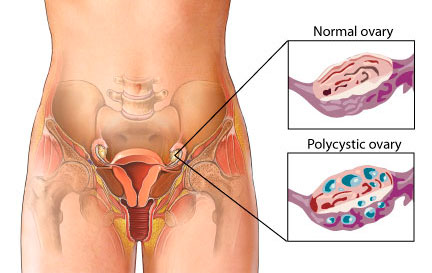Thyroid issues are common, especially in women and especially if there is a family history of thyroid disorders in your family. When your thyroid goes out of balance, it can cause all sorts of symptoms and issues in your body. You need to know what to look for.
When Your Thyroid Goes Awry
Does fatigue drag you down day after day?
Do you have brain fog, weight gain, chills, or hair loss?
Or is the opposite true for you: Are you often revved up, sweaty, or anxious?
Your thyroid gland could be to blame. This great regulator of body and mind sometimes goes haywire, particularly in women. Pregnancy and postpartum is when it can also go haywire too. Getting the right treatment is critical to feel your best and avoid serious health problems.
What Is the Thyroid Gland?
The thyroid is a butterfly-shaped gland in the front of the neck. It produces hormones that control the speed of your metabolism — the system that helps the body use energy. Thyroid disorders can slow down or rev up metabolism by disrupting the production of thyroid hormones. When hormone levels become too low or too high, you may experience a wide range of symptoms.
Symptom: Weight Gain or Loss
An unexplained change in weight is one of the most common signs of a thyroid disorder. Weight gain may signal low levels of thyroid hormones, a condition called hypothyroidism. In contrast, if the thyroid produces more hormones than the body needs, you may lose weight unexpectedly. This is known as hyperthyroidism. Hypothyroidism is far more common.
Symptom: Swelling in the Neck
A swelling or enlargement in the neck is a visible clue that something may be wrong with the thyroid. A goiter may occur with either hypothyroidism or hyperthyroidism. Sometimes swelling in the neck can result from thyroid cancer or nodules, lumps that grow inside the thyroid. It can also be due to a cause unrelated to the thyroid.
Symptom: Changes in Heart Rate
Thyroid hormones affect nearly every organ in the body and can influence how quickly the heart beats. People with hypothyroidism may notice their heart rate is slower than usual. Hyperthyroidism may cause the heart to speed up. It can also trigger increased blood pressure and the sensation of a pounding heart, or other types of heart palpitations.
Symptom: Changes in Energy or Mood
Thyroid disorders can have a noticeable impact on your energy level and mood. Hypothyroidism tends to make people feel tired, sluggish, and depressed. Hyperthyroidism can cause anxiety, problems sleeping, restlessness, and irritability.
Symptom: Hair Loss
Hair loss is another sign that thyroid hormones may be out of balance. Both hypothyroidism and hyperthyroidism can cause hair to fall out. In most cases, the hair will grow back once the thyroid disorder is treated.
Symptom: Feeling Too Cold or Hot
Thyroid disorders can disrupt the ability to regulate body temperature. People with hypothyroidism may feel cold more often than usual. Hyperthyroidism tends to have the opposite effect, causing excessive sweating and an aversion to heat.
Other Symptoms of Hypothyroidism
Hypothyroidism can cause many other symptoms, including:
- Dry skin and brittle nails
- Numbness or tingling in the hands
- Constipation
- Abnormal menstrual periods
Other Symptoms of Hyperthyroidism
Hyperthyroidism can also cause additional symptoms, such as:
- Muscle weakness or trembling hands
- Vision problems
- Diarrhea
- Irregular menstrual periods
Thyroid Disorder or Menopause?
Because thyroid disorders can cause changes in menstrual cycle and mood, the symptoms are sometimes mistaken for menopause. If a thyroid problem is suspected, a simple blood test can determine whether the true culprit is menopause or a thyroid disorder — or a combination of the two.
Who Should Be Tested?
If you think you have symptoms of a thyroid problem, ask your doctor if you should be tested. People with symptoms or risk factors may need tests more often. Hypothyroidism more frequently affects women over age 60. Hyperthyroidism is also more common in women. A family history raises your risk of either disorder.
Thyroid Neck Check
A careful look in the mirror may help you spot an enlarged thyroid that needs a doctor’s attention. Tip your head back, take a drink of water, and as you swallow, examine your neck below the Adam’s apple and above the collarbone. Look for bulges or protrusions, then repeat the process a few times. See a doctor promptly if you see a bulge or lump.
Diagnosing Thyroid Disorders
If your doctor suspects a thyroid disorder, a blood test can help provide an answer. This test measures the level of thyroid stimulating hormone (TSH), a kind of master hormone that regulates the work of the thyroid gland. If TSH is high, it typically means that your thyroid function is too low (hypothyroid). If TSH is low, then it generally means the thyroid is overactive (hyperthyroid.) But just measuring TSH levels is not enough. People with thyroid disorders can have normal TSH levels and the other thyroid hormone levels and this is why thyroid antibody testing is probably the most important testing to be done. High thyroid antibodies mean you have a thyroid condition and your thyroid gland is under attack. Hopefully doctor will want to check all the other thyroid hormones in your blood. If he/she doesn’t, make sure they do. They should always check TSH, Free T3, Free T4, Reverse T3 and Thyroid antibodies. In some cases, imaging studies are used and biopsies are taken to evaluate a thyroid abnormality.
Hashimoto’s Disease
The most common cause of hypothyroidism is Hashimoto’s disease. This is an autoimmune disorder in which the body attacks the thyroid gland. The result is damage to the thyroid, preventing it from producing enough hormones. Hashimoto’s disease tends to run in families. This is why thyroid antibodies needs to be checked because people with Hashimotos disease can actually have normal TSH levels and normal Free T3, Free T4 and reverse T3 levels.
Other Causes of Hypothyroidism
In some cases, hypothyroidism results from a problem with the pituitary gland, which is at the base of the brain. This gland produces thyroid-stimulating hormone (TSH), which tells the thyroid to do its job. If your pituitary gland does not produce enough TSH, levels of thyroid hormones will fall. Other causes of hypothyroidism include temporary inflammation of the thyroid or medications that affect thyroid function.
Graves’ Disease
The most common cause of hyperthyroidism is Graves’ disease. This is an autoimmune disorder that attacks the thyroid gland and triggers the release of high levels of thyroid hormones. One of the hallmarks of Graves’ disease is a visible and uncomfortable swelling behind the eyes. Again this is why testing thyroid antibodies is so important.
Other Causes of Hyperthyroidism
Hyperthyroidism can also result from thyroid nodules. These are lumps that develop inside the thyroid and sometimes begin producing thyroid hormones. Large lumps may create a noticeable goiter. Smaller lumps can be detected with ultrasound. A thyroid uptake and scan can tell if the lump is producing too much thyroid hormone.
Thyroid Disorder Complications
When left untreated, hypothyroidism can raise cholesterol levels and make you more likely to have a stroke or heart attack. In severe cases, very low levels of thyroid hormones can trigger a loss of consciousness and life-threatening drop in body temperature. Untreated hyperthyroidism can cause serious heart problems and brittle bones.
Treating Hypothyroidism
If you are diagnosed with hypothyroidism, your doctor will most likely prescribe thyroid hormones in the form of a pill. This usually leads to noticeable improvements within a couple of weeks. Long-term treatment can result in more energy, lower cholesterol levels, and gradual weight loss. Most people with hypothyroidism will need to take thyroid hormones for the rest of their lives.
Treating Hyperthyroidism
The most common treatment for hyperthyroidism is antithyroid medication, which aims to lower the amount of hormones produced by the thyroid. The condition may eventually go away, but many people need to remain on medication for the long term. Other drugs may be given to reduce symptoms such as rapid pulse and tremors. Another option is radioactive iodine, which destroys the thyroid gland over the course of 6 to 18 weeks. Once the gland is destroyed, or removed by surgery, most patients must begin taking thyroid hormones in pill form.
Surgery for Thyroid Disorders
Removing the thyroid gland can cure hyperthyroidism, but the procedure is only recommended if antithyroid drugs don’t work, or if there is a large goiter. Surgery may also be recommended for patients with thyroid nodules. Once the thyroid is removed, most patients require daily supplements of thyroid hormones to avoid developing hypothyroidism.
What About Thyroid Cancer?
Thyroid cancer is uncommon and is among the least deadly. The good thing with thyroid cancer is that it is encapsulated, so it won’t spread. Once the thyroid gland is removed, the cancer is removed also. The main symptom is a lump or swelling in the neck, and only about 5% of thyroid nodules turn out to be cancerous. When thyroid cancer is diagnosed, it is most often treated with surgery followed by radioactive iodine therapy or, in some cases, external radiation therapy
Complementary Medicine For Thyroid Issues
There are complementary medicines that may assist thyroid issues and it is important that you have a consultation and talk to a qualified healthcare practitioner about these options.
There are also supplements and other herbal medicine that may assist thyroid function, or balancing the thyroid hormones.
Diet and lifestyle changes are also very important for thyroid health, as is working on the gut and microbiome to reduce inflammation in the body and assist the immune system as well. There are also compounded natural thyroid medications that may assist thyroid issues as well.
Please make sure you see your healthcare practitioner, or endocrinologist for help with thyroid issues and ongoing management and never try to manage things on your own.
If you need assistance with thyroid management and management of other hormonal issues, please call my friendly clinic staff and they will be able to book you in for a consultation and explain more.
Regards
Andrew Orr
-Women’s and Men’s Health Advocate
-No Stone Left Unturned














